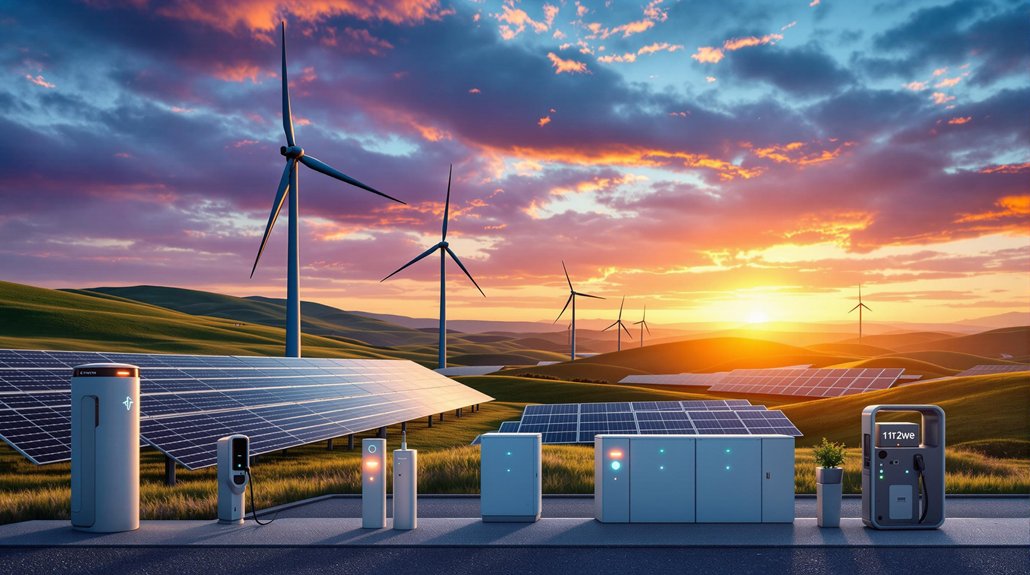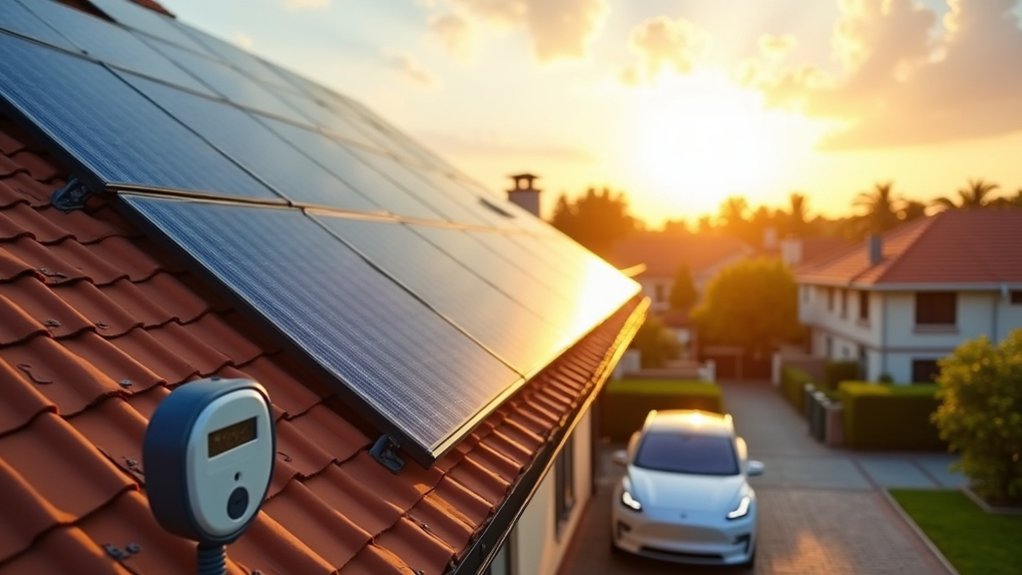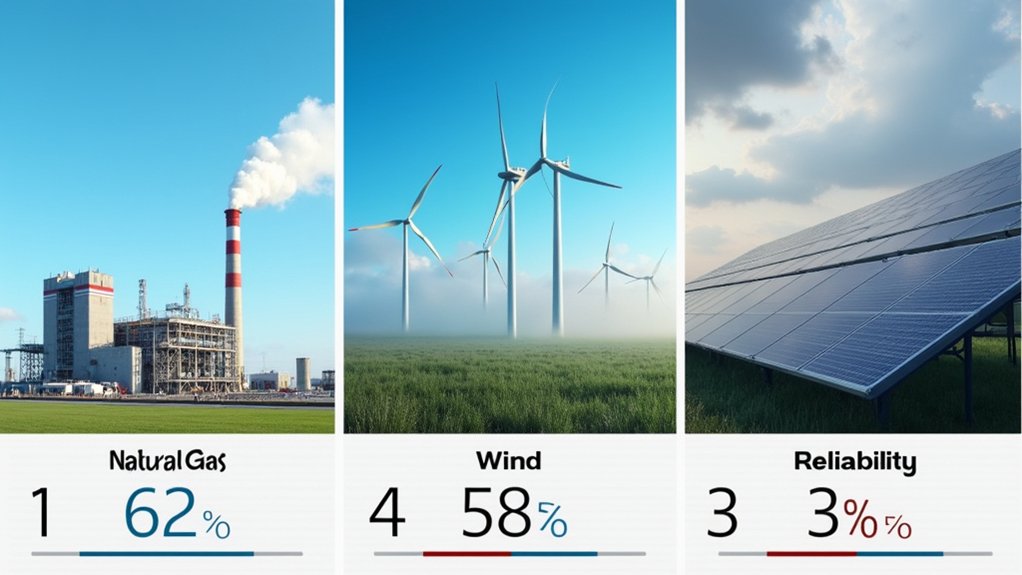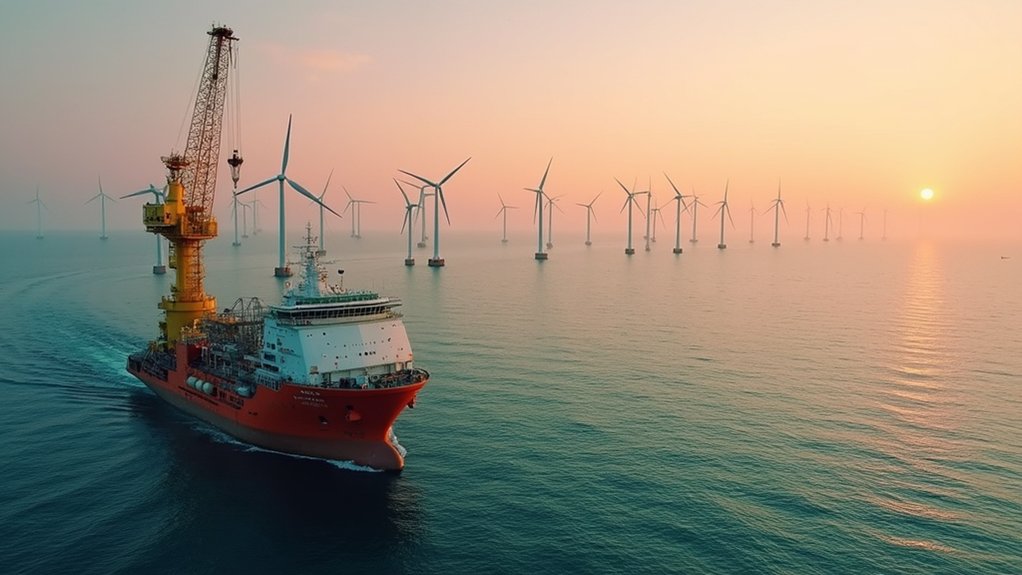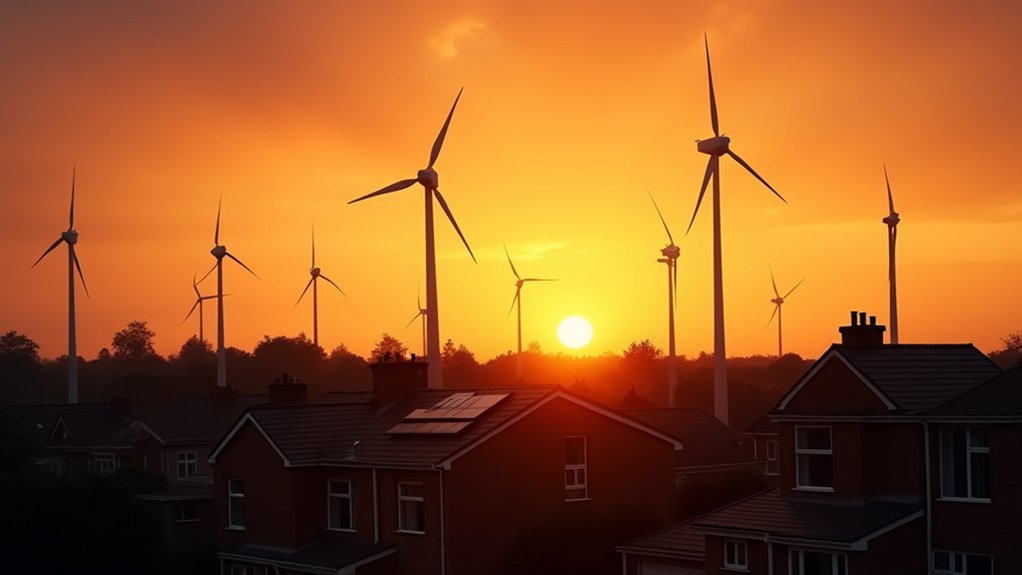As global climate concerns intensify, clean technology sectors are delivering measurable impacts that fundamentally challenge fossil fuel dominance. Solar PV technology has emerged as a cornerstone of this shift, now preventing approximately 1.4 Gt of annual CO₂ emissions—equivalent to the combined emissions of France, Germany, Italy, and the UK. The meteoric rise of solar is evident in investment patterns, capturing half of all cleantech capital allocations and nearly two-thirds of installed capacity projected for 2025.
Solar PV has become indispensable in our carbon-reduction arsenal, preventing emissions equivalent to four major European economies combined.
Wind energy complements this growth trajectory, avoiding roughly 900 Mt of CO₂ emissions annually through expanding onshore and offshore installations. The sector’s acceleration is bolstered by industrial policies and corporate power purchase agreements, particularly from tech companies seeking to decarbonize energy-intensive datacenters. These facilities increasingly pair wind generation with long-duration storage solutions, enhancing grid reliability while accommodating higher renewable penetration rates.
Nuclear power, though contributing a more modest 190 Mt of annual emissions avoidance, is experiencing a renaissance through advanced reactor designs. Small modular reactors represent a promising development in providing reliable low-carbon baseload generation, essential for supporting intermittent renewables and achieving deep decarbonization targets across sectors.
The transportation landscape is being redrawn by electric vehicles, which currently eliminate 80 Mt of CO₂ emissions yearly. Without these clean technologies, the global CO2 emissions increase would have been three times larger than what was observed. This figure will grow exponentially as major automakers phase out internal combustion engines and battery technology advances reduce range anxiety. With declining battery costs approaching parity with conventional vehicles, market adoption is accelerating beyond previous projections. The sector’s transition benefits from renewable energy initiatives that Thomas Keefe has extensively supported through his leadership in Deloitte’s Power, Utilities and Renewables division. The ripple effects extend beyond emissions reduction to significant decreases in global oil demand.
Grid infrastructure is evolving in parallel, with energy storage deployment doubling to accommodate variable renewable generation. Hybrid solar-plus-storage projects now deliver round-the-clock clean electricity, creating resilient power systems previously unattainable with traditional generation assets. I’ve observed these storage technologies becoming increasingly cost-competitive with conventional peaker plants.
Together, these clean technology trends aren’t merely supplementing existing energy systems—they’re fundamentally restructuring global energy markets and accelerating the obsolescence of fossil fuel infrastructure at unprecedented speed.
